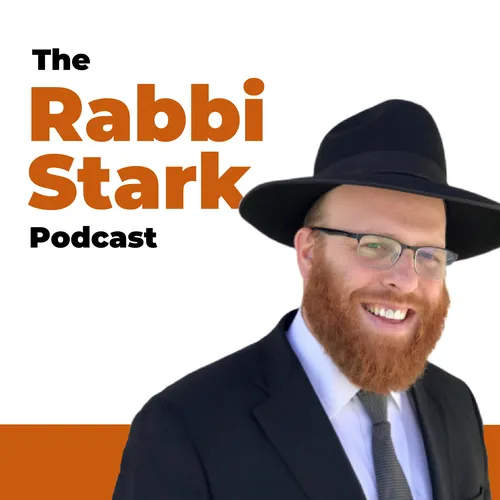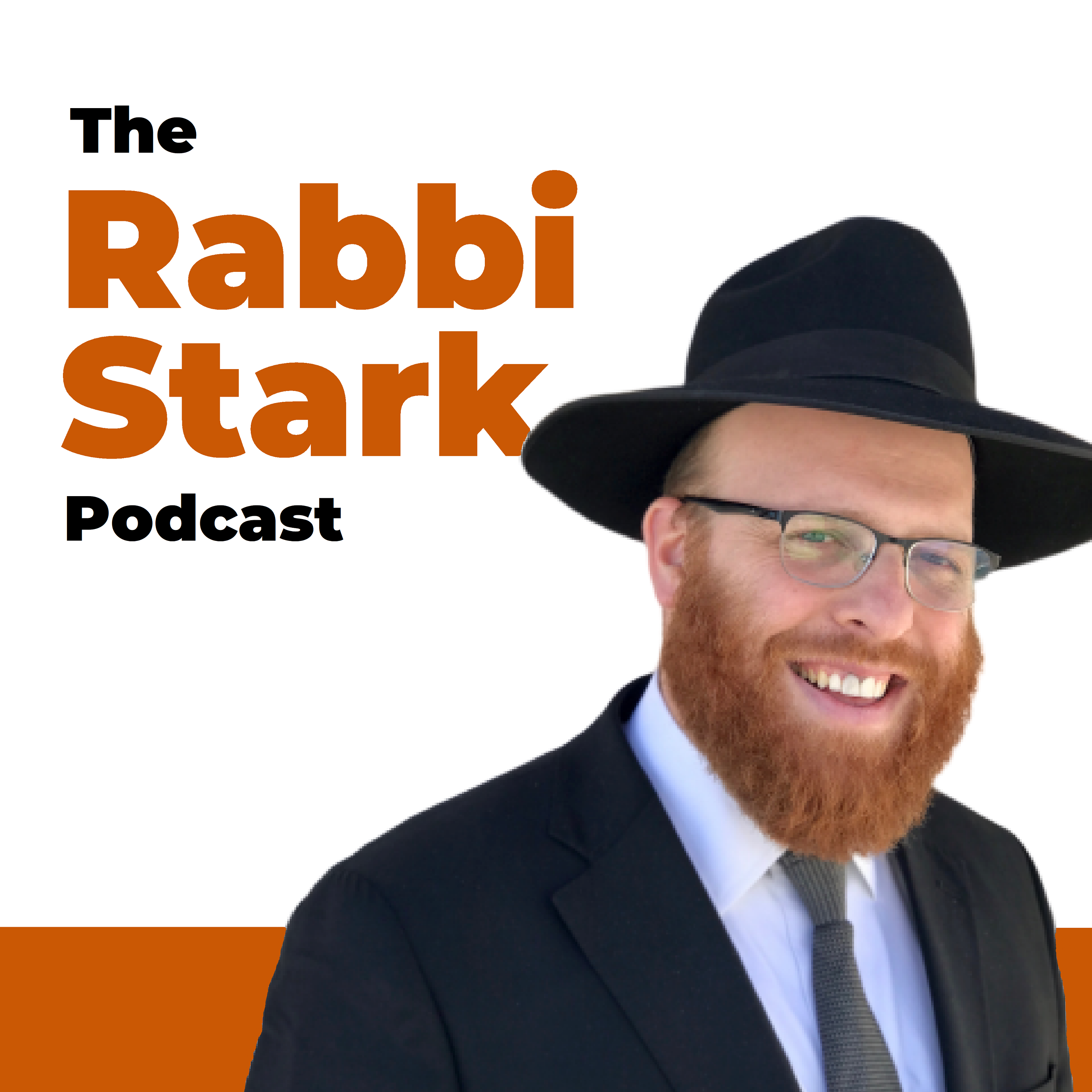
The Rabbi Stark Podcast
Tired of the mundane? Ready to inject some spirituality into your life? Welcome to The Rabbi Stark Podcast. The Mashgiach—formerly of Aderes Hatorah (Senters) and currently of Mishkan Shmuel—is sure to inspire you with his weekly "schmoozim" on topical subjects which will both enlighten your mind and invigorate your soul. Uploaded weekly. For questions, comments, and concerns email [email protected]. To access additional series and the archives visit https://bit.ly/RabbiStark.
- Update frequency
- every 3 days
- Average duration
- 37 minutes
- Episodes
- 386
- Years Active
- 2019 - 2025

Simchas Torah: Getting In The Zone
Simchas Torah is a Yom Tov when we celebrate the completion of the Torah—together. Although, on this Simchas Torah the celebrating may look very different, if we truly understand the greatness of the…

Sukkos 3: Taking Matters Into Our Own Hands
Continuing in the theme of the arbah minim, the Mashgiach goes into more depth as to what they represent and how, by taking them together—in our hands—we can access "koichos" not typically attainable…

Sukkos 2: Dancing With Depth
While there is a mitzvah to be happy on every Yom Tov, Sukkos is the only Chag described as "zman simchaseinu." Sukkos inherently contains an additional level of simcha and the Mashgiach is here to t…

Sukkos 1: One Family
After Yom Kippur, on which we proclaim Hashem as our Father and that we are his children, we almost immediately head into Sukkos. Of the main "avodas" of Sukkos is for Klal Yisroel to not just be chi…

A Short Chizuk Before Yom Kippur
With Yom Kippur just a few short hours away, Rabbi Stark has some last minute thoughts to help ensure we make the most of the day's opportunities.

Yom Kippur: The Greatest Opportunity
In last week's schmooze, the Mashgiach describes that if one understands that Hashem is the King they are afforded a great opportunity to connect with him. This week the Mashgiach explains how there …

Rosh Hashanah: An Opportunity For Greatness
Rosh Hashanah is the day on which the world—and everything in it—is judged, and it is therefore a very serious day. However, this fact also makes Rosh Hashanah the best time to take advantage of the …

Elul 3: Being Alone In Yeshiva
In order to do proper tshuvah it is imperative that we are alone. During this trying time of quarantine we are experiencing being alone like never before. But what is this idea of aloneness and why d…

Elul 2: Listening To The Song Of Torah
Elul stands for Ani L'dodi V'dodi Li and is all about creating a relationship with Hashem. Rabbi Stark explains how the best way to create this relationship is through the "song" of Torah.

Elul 1: New Beginnings
Elul is here and the new zman along with it, however, this Elul is unlike any we've ever experienced before. Nonetheless, we must recognize the new beginning Elul ushers in and understand how we can …

Mezuzah: What We Call "Home"
Chazal say "anyone who puts on Tefillin, wears Tzitzis, and has a Mezuzah by the entrance of his house has a "chazakah" that he won't sin." The Mashgiach discusses Mezuzah and explains why this is th…

Tefillin 2: Being An Ambassador Of Hashem
Bein Hazmanim or not, Rabbi Stark and his spreading of Torah cannot be stopped. In this latest segment, the Mashgiach continues in the theme of Tefillin and what it stands for.

Tisha B'Av: Relating To The Churban
Although summer zman has ended, and the "schmooze" along with it, Rabbi Stark sits down in a more informal setting to discuss Tisha B'Av and how we are to relate to the "Churban" Beis Hamikdash.

Tefillin 1: Life Is More Than Just "Behaving"
R' Stark has been discussing how Tzitzis is all about connecting with Hashem and the Mitzvos. This week, the Mashgiach "ups the ante" and discusses how Tefillin fits into the mix.

Tzitzis 2: Seeing Things Deeper
Tzitzis is such an easy mitzvah that we sometimes don't appreciate its importance and the opportunity it presents us with. However, if we understood the enormity of the mitzvah of Tzitzis we would no…

Tzitzis 1: An Identity Crisis
"The clothes make the man" is a statement which we have all heard in the past. But, how true is that assertion and if it is true then where does tzitzis fit in?

Shavuos: A Crown Of Torah, A Crown Of Mitzvos
Sefiras HaOmer is culminating with Shavuos, the day Hashem gave us the Torah—and the Mitzvos. In this weeks segment, Rabbi Stark helps us to comprehend what the Torah and the Mitzvos are and what the…

Sefiras HaOmer 4: Actualizing Our Potential
During this time of Sefiras HaOmer we prepare ourselves to be makabel the Torah. Yet, the real challenge lies in actualizing one's potential after they have identified it.

Sefiras HaOmer 3: Torah...Our Lifetime
Continuing in the theme of the past weeks, we must really comprehend what the Torah is and its place in our lives.

Sefiras HaOmer 2: Staying Connected
As yeshivah bachurim, we are typically only not present in yeshiva during "bein hazmanim," a time which the name itself connotes is merely a layover period between two more important times—the "zman"…